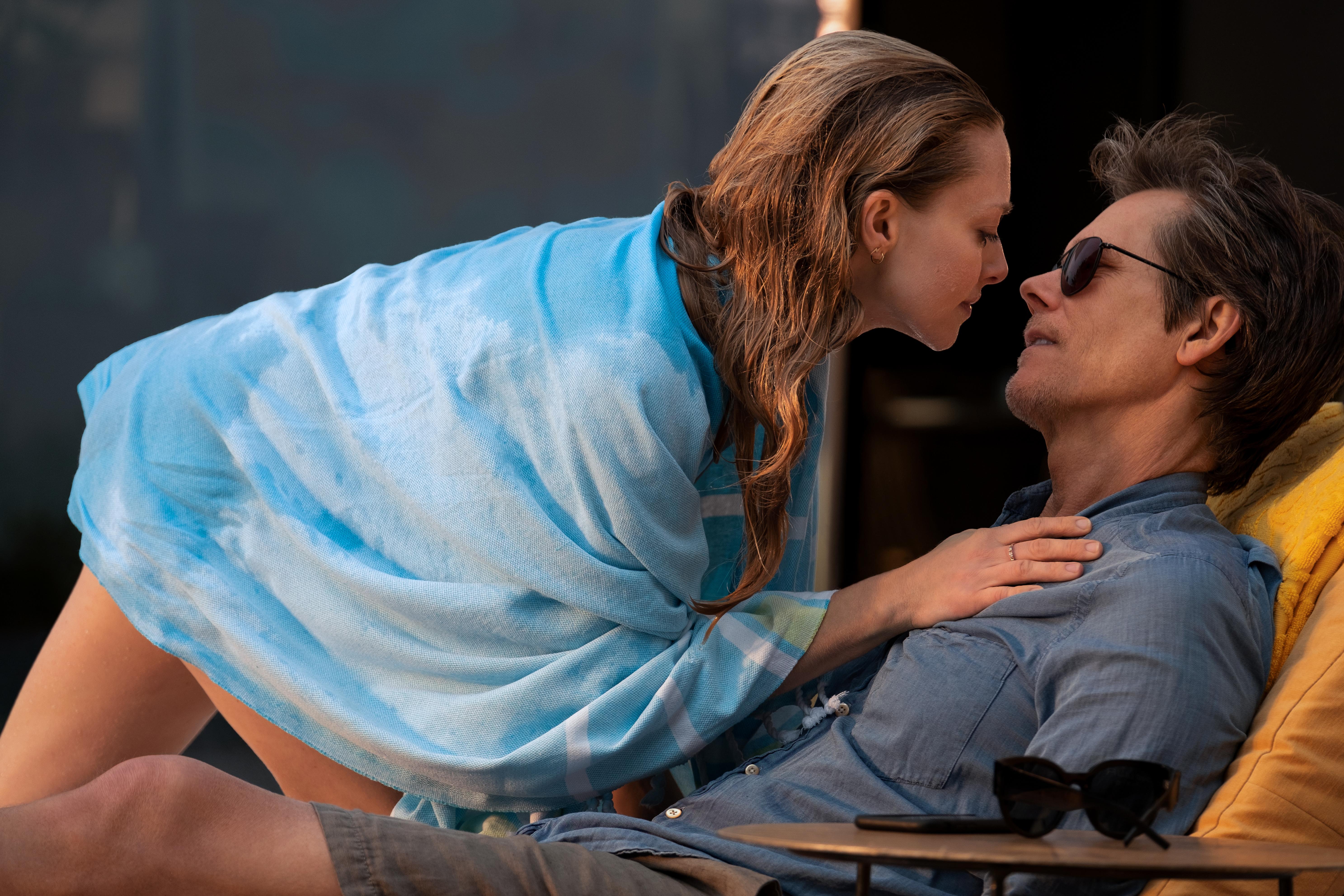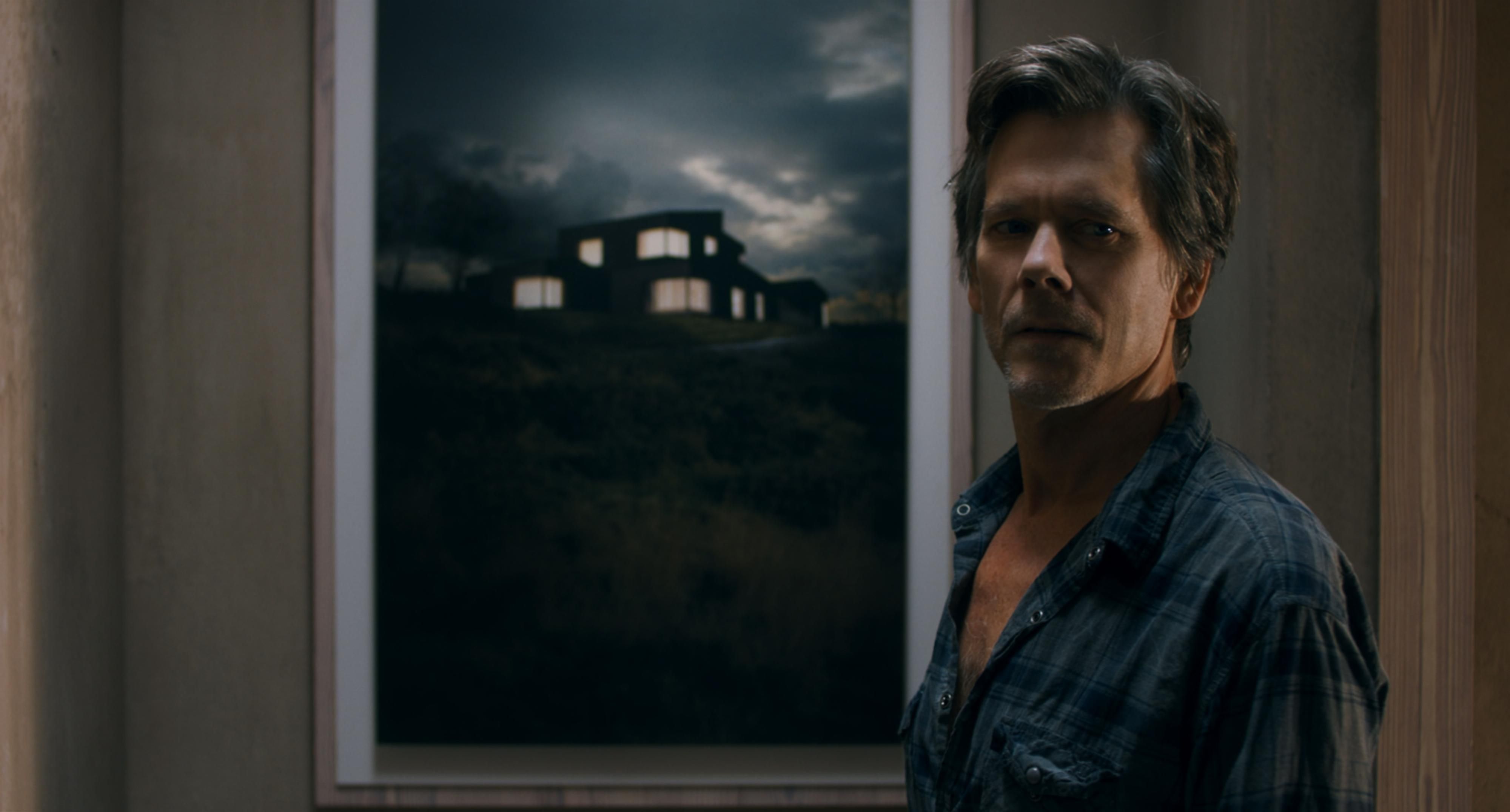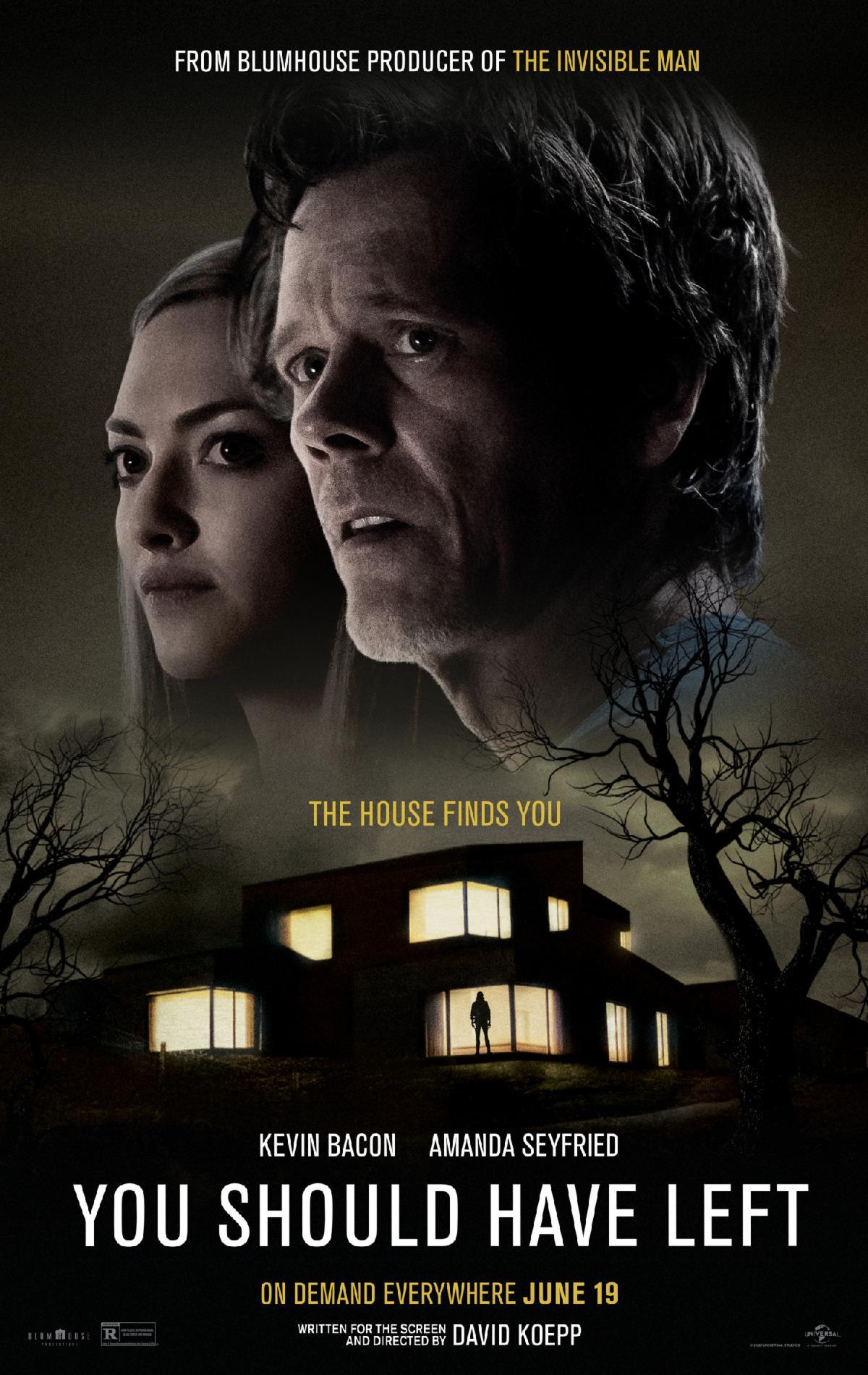Synopsis
Theo Conroy, portrayed by Kevin Bacon, is a middle-aged ex-banker who seeks solace in his family life with his wife, Susanna, a young actress played by Amanda Seyfried, and their daughter, Ella. Plagued by unsettling dreams, Theo hopes a family retreat in the Welsh countryside will bring tranquility. However, the vacation begins to unveil hidden depths of unease as dreams follow them, and Theo's past shadows emerge within the spacious, yet mysterious, vacation home.
Upon their arrival, the Conroys are enchanted by the home's vastness, but it soon reveals an ominous nature. Time fluctuates inexplicably, and shadows appear where they shouldn't. A casual walk in the town uncovers unsettling whispers about the house's history and its enigmatic owner, Stetler. Theo is given a cryptic directive to measure the right angles of the house, which fuels his confusion and paranoia.
Tensions rise when Susanna inadvertently reveals Theo's past to Ella—a dark chapter involving his first wife's tragic death, casting suspicion on Theo despite his acquittal. This revelation ignites marital discord just as Theo's unease with the house grows. While exploring, Theo discovers a hidden passage that leads him into the realm of nightmares, forcing him to confront distorted visions of his family and a chilling message in his journal urging him to flee.
The plot thickens when Theo stumbles upon Susanna's secret, inciting a confrontation that lays bare infidelity and underlying mistrust. As the couple grapples with their unraveling relationship, the house manipulates their perceptions, twisting reality into a bewildering nightmare. Theo and Ella attempt an escape, only to find themselves inexorably drawn back to the enigmatic residence, where their fears materialize.
As Theo faces his ultimate demon, the manifestations of his fears capture him in the house's wily clutches. He encounters the spectral presence of Stetler, who takes on Theo's appearance, challenging him to confront his guilt. Theo's admission of passivity in his first wife's demise emerges as a poignant revelation, marking his resignation to the house's cryptic grasp while warning Susanna and Ella to flee its grasp.
The house's sinister allure persists, as the haunting memories of those entwined within its walls cycle endlessly, suggesting its captivating draw will continue to lure unsuspecting visitors. As the curtain falls, the landscape remains unchanged, and the cycle of entrapment is perpetuated with no signs of cessation. The tale emerges as a haunting exploration of guilt, redemption, and the inexorable pull of one's darkest fears, set against the brooding backdrop of an eerie Welsh countryside.
Argument
The psychological thriller film delves into the haunting narrative of Theo Conroy, portrayed impeccably by Kevin Bacon. As a recently retired banker grappling with the repercussions of his past, Theo is depicted as a complex character attempting to navigate the intricacies of his strained personal life. Married to a much younger actress, Susanna, played by Amanda Seyfried, Theo finds himself ensnared in a web of suspicion and alienation. His marriage, initially perceived as serene and thriving, shows cracks through his recurring nightmares and growing paranoia, setting the stage for a gripping exploration of guilt and redemption.
From the outset, the dynamics of Theo's relationship with Susanna reveal a palpable tension. During a visit to Susanna’s film set, Theo encounters an unsettling lack of welcome and discovers his wife's involvement in a provocative scene. This incident not only exacerbates his insecurities but also highlights the influence of societal perceptions and their potential to overshadow personal realities. Notably, Theo's discomfort is compounded by his apparent notoriety; he is a reluctant protagonist in a story marred by scandalous conjecture surrounding the death of his first wife—a topic that looms ominously over his family’s new beginning.
Seeking solace, the Conroys retreat to a striking, yet enigmatic vacation home in Wales, a location steeped in mystery and intrigue. The architectural grandeur of the house provides a temporary refuge, yet its labyrinthine structure quickly becomes a mirror to the entangled psyches of its occupants. Time inexplicably lurches forward, and the manifestation of nightmares within its walls amplifies their personal dissonances. It is within these confines that Theo's burgeoning realization of his wife’s clandestine affair with another actor, Max, unfortunately adds another layer to their marriage’s fractures.
As the plot unfolds, the foreboding aspects of the house come into stark focus. Upon a casual visit to the town, a communal narrative unfurls about the property and its elusive owner, Stetler. This interaction adds a collective suspicion surrounding the house's foreboding history. A shopkeeper’s disturbing insinuations and the cryptic benevolence of fellow locals further deepen Theo's unease, suggesting a preordained malevolence that transcends the physical realm. The ruler they provide, meant to measure the inexplicably distorted geometry of interior and exterior dimensions, symbolizes the surreal and disjointed reality Theo is grappling with.
Crucially, Theo's decision to confront Susanna over her indiscretions is a pivotal moment, providing a raw insight into his vulnerability. Her admission of infidelity elicits a sense of betrayal from which their relationship might not recover. Yet, it is Theo's personal confrontation with his past, when he confesses to Susanna about the circumstances surrounding his first wife’s mysterious drowning, that truly dismantles the facade of normalcy he has attempted to maintain. **His confession stands as a moment of painful catharsis, revealing his culpability in her death not by action, but through deliberate inaction.** This revelation underscores the film's pervasive theme that one cannot simply evade the past; instead, it must be confronted and owned.
As Theo ventures deeper into the house's intricate passages, drawn by chilling visions and elusive shadows, he encounters apparitions of his daughter Ella and the menacing doppelgänger of Stetler. These sequences are crafted to blur the lines between reality and the subconscious, belying a world governed by guilt and fear. When Stetler demands that Theo embrace his fate in exchange for Ella’s safety, it highlights the moral reckoning commanding Theo's actions. He grapples with the haunting reality that the residue of sins, past and present alike, can dictate one's fate.
In the climactic denouement, when Theo accepts the inexorable embrace of the house, he acknowledges the self-destructive path borne of unresolved guilt. The film achieves a haunting profundity when it illustrates Susanna’s return and her inability to accept Theo's truth. By leaving Ella in the car, Theo symbolically attempts to sever the chain of trauma from ensnaring the next generation, albeit with great personal sacrifice. Ultimately, **Theo’s capitulation to the house constitutes a tragic, yet redemptive acknowledgment of his past, reconciling personal failure with responsibility**.
The chilling voiceover of the shopkeeper at the film’s closure reflects the cyclical and inescapable nature of the house’s malevolence. As a new listing for the property appears online, it resonates as a pervasive reminder of the unseen forces that bind individuals to places linked inexorably to their conscience. In conclusion, is more than a thriller; it is an introspective journey into the heart of darkness, exploring the manifestation of guilt and the inevitable confrontation with the past. Its compelling narrative and character development depict a poignant tale of a man trapped by his own shortcomings, where the departure from reality emerges as both a curse and salvation.
Cast

Kevin Bacon
Theo

Amanda Seyfried
Susanna

Avery Tiiu Essex
Ella

Colin Blumenau
Shopkeeper

Lowri Ann Richards
Welsh Woman

Joshua C Jackson
Production Assistant - Susanna's Movie

Eli Powers
Susanna's Assistant
Multimedia











